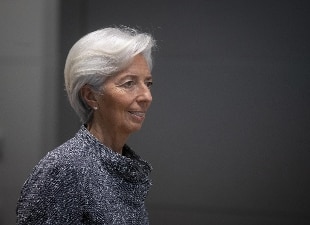- Coronavirus, ECB: "Ready to give support, but a political response is needed"
- The German Constitutional Court mortgages the future of the ECB
Share
May 07, 2020 "Central banks, including the ECB, have the privilege of being independent institutions. In our case we have been reporting to the European Parliament where I have been going for over three months to report on our actions and we are under the jurisdiction of the European Court of Justice. "says ECB president Christine Lagarde at Bloomberg's webinar on how to get the economy going, while protecting public health. "We continue undisturbed," he assured: the ECB "will continue to do whatever it takes to pursue its mandate."Lagarde answered a question about the German Constitutional Court ruling, which gave the Governing Council three months to justify the proportionality of the Quantitative Easing.
"In any case, we are guided by the mandate and therefore we are ready to do everything necessary to respect our mandate and ensure a correct transmission of our monetary policy to all jurisdictions. We are in a clearly unprecedented situation and therefore we must go further normal and conventional instruments and make use of exceptional instruments that must be well calibrated and with due flexibility. This is what we are doing and we intend to continue doing. "
To a further question as to whether the ECB intends to respond to the German court's request, Lagarde replied that the ECB is a "European institution, accountable to the European Parliament and subject to the European Court of Justice".
The sentence and diplomacy
According to the German court, if the ECB does not give a full explanation within three months, the Bundesbank will no longer be able to participate in the Qe, effectively compromising the effectiveness of the monetary policy of the Central Bank in light of the extension of the itself in the fight against the effects of the pandemic with the Peppemic emergency purchase program.
Lagarde "will seek a diplomatic solution that protects the independence of the ECB and meets the demands of the judges," explained a source in Brussels. Former French finance minister and former IMF director, a lawyer by profession, Lagarde is a woman accustomed to dealing and "does not want to aggravate the conflict", the source added to AFP.
In particular, the German judges asked for more details on the pros and cons of the 2,200 billion euros of purchases of government bonds made by the ECB starting from 2015, under the PSPP program (Public sector purchase program).
Four board members, under anonymity, told the Financial Times today "that they do not want to respond directly to the German court, arguing that such a move would undermine the independence of the central bank and expose it to pressure from other national courts."

